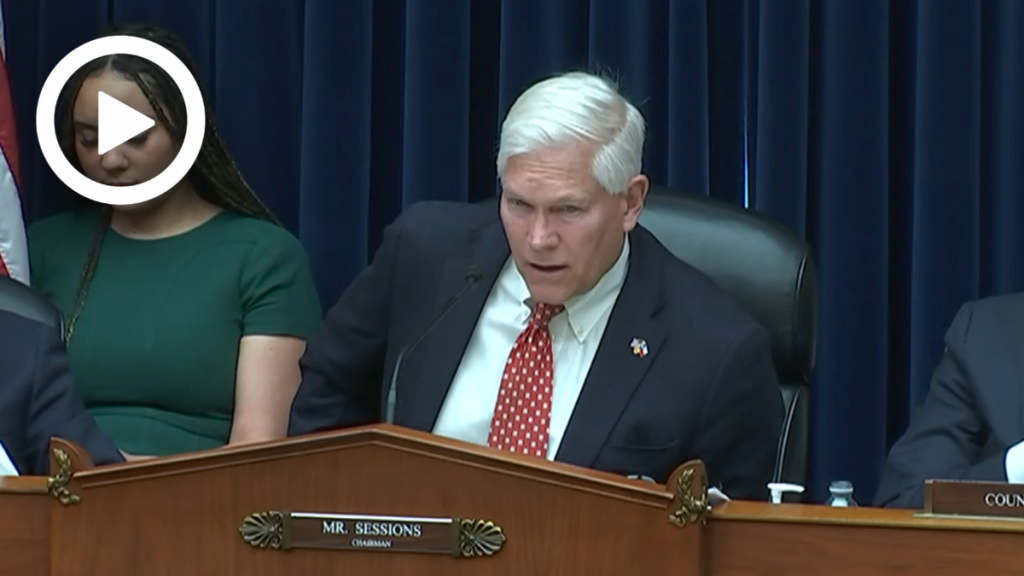Sessions: Americans Presently Dealing with Pandemic-Era Disruptions to Service Across Federal Agencies
WASHINGTON – Today, Government Operations and the Federal Workforce Subcommittee Chairman Pete Sessions (R-Texas) delivered opening remarks at a subcommittee hearing titled Please Leave Your Message at the Tone: Addressing Post-Pandemic Backlogs and Delays at Federal Agencies.” In his opening statement, Subcommittee Chairman Sessions emphasized that the COVID-19 pandemic laid bare weaknesses within the operations of federal agencies that impeded services and has left disruptions and backlogs that persist to the present day. He noted Congress has a duty to understand why disruptions and delays are still plaguing federal agencies and seek remedies to these interruptions in service. He closed by thanking the witnesses for testifying before the subcommittee and looking forward to getting answers for the American people.
Below are Subcommittee Chairman Sessions’ remarks as prepared for delivery.
Welcome to today’s hearing on customer service issues at select federal agencies.
The COVID pandemic provided a stress test to federal agencies in many ways. Earlier this year, we heard in detail how fraud prevention measures failed in COVID relief programs, and the result is that untold billions – hundreds of billions of dollars – were lost.
But another stress test was the ability to deliver services to the American people. And in some cases, COVID laid bare weaknesses that impeded services, leaving disruptions and backlogs that persist to the present day.
I always try to be fair, and it would not be fair to look back with the benefit of hindsight and criticize agencies for not having foreseen a pandemic the likes of which none of us living have ever experienced. And it is impossible and impractical to prepare for every potential event.
Nevertheless, it is our duty to review the steps planned or taken through two lenses:
First, are the backlogs being retired, and are service disruptions being remedied?
As Members of Congress, we hear the frustrations of those unable to access government services that many have come to rely upon.
So, on behalf of our constituents, we are eager to learn whether things are getting back to normal – and if not, why not.
The second lens is: are we better prepared for future emergencies?
That is, if COVID 2.0 hit next year, will we just have a repeat of what happened before?
Those processes that required in-person work were obviously the ones that proved most fragile during COVID.
This is not the same as the telework debate – and Republicans’ concerns with an unchecked move toward ever-increasing telework among the federal employees.
To be clear, what we want to know, and what the legislation the House passed in January requires, is that agency performance has not and will not suffer from a large-scale, permanent shift to remote work.
But that is different from continuity of operations – of dealing with a situation when remote work is required.
In looking at the three agencies here today, the National Personnel Records Center, the State Department’s Consular Affairs Bureau, and the Social Security Administration, it seems that while the situations are different, there are common themes.
Manpower is the key ingredient in dealing with the lingering backlogs and service disruptions.
We will hear from all three about the difficulties in hiring and retaining permanent personnel.
And adopting and improving technology is the key ingredient for improving service generally and preparing for future emergencies.
I am eager to hear the specifics of these agencies’ plans, and I would like to thank each of our witnesses for agreeing to appear here today.
And with that, I yield to the distinguished ranking member of the subcommittee, Mr. Mfume.
